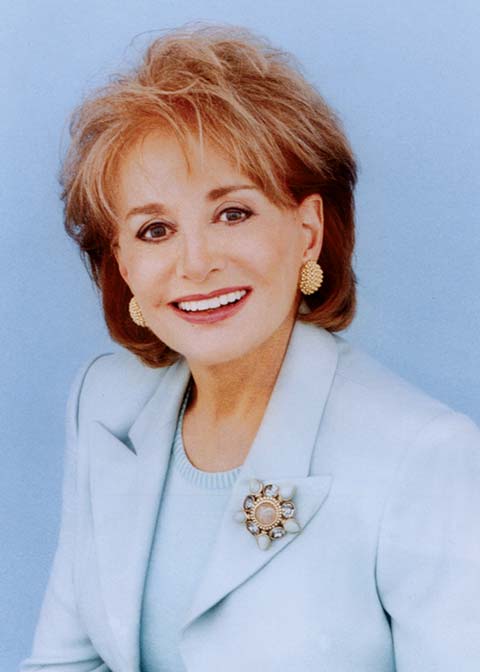The forum expresses heartfelt condolences for the passing of this famous contemporary replacement child:
Barbara Walters is considered one of the pioneers of women in broadcasting. She was a trailblazer, not only for female journalists, but for all women. Over her 50 year career, she became as famous as the people she interviewed.

The picture she paints in her memoir, “Auditions”, has many of the elements of a replacement child; carrying her parents grief over a lost son and challenged daughter. The burden to succeed was placed upon her shoulders early on. Barbara was not free to live her life on her own terms. Like so many other replacement children, her life was redirected by loss before she was born. Her life is a great example of how through the challenges and difficulties she develops great compensatory skills in the face of relational challenges.
Life was not easy for Barbara growing up. She remembers her mother being practical but depressed and a father who was away a lot, lived in his own head, and kept his family on a financial roller coaster.
Born on September 25, 1929, Barbara was the youngest of three children. Her brother, Burton, was 14 months old when he died of pneumonia seven years before she was born. Her parents tried to avoid their pain by never mentioning him but gave Barbara a name beginning with the initial “B” in Burton’s memory. She never heard her parents talk about Burton, but Barbara remembers that when her grandmother died and she went with her mother to visit her grave, next to it was a tiny gravestone that read “Burton Walters.” Her mother knelt down beside it and cried.
Her sister, Jackie, born three years before Barbara, was mentally challenged. Her parents protected her, never discussing her outside the family or explaining her condition to anyone. Jackie’s limits contributed to Barbara‘s isolation, she lived as if in her sister’s shadow. As a child Barbara was not able to join activities or have birthday parties because Jackie was unable to. Barbara was candid about saying how she loved her sister but how she hated her also for being different and making Barbara also feel different.
The burden to succeed was placed upon her shoulders early on. In her memoir, “Audition”,
Barbara candidly speaks of the enormous impact her sister’s limited condition had on her. Barbara felt embarrassed, ashamed and guilt ridden about her feelings, and also jealous that her mother’s attention was always focused on Jackie. She realized from a very early age that Jackie would become her responsibility. As an adult, Barbara supported her sister financially and made decisions for her. She states in her book, “I couldn’t always love her, she always loved me…. “She taught me compassion and understanding – in later years, these feelings would be important to me in interviewing. “
As it is with so many replacement children who take on a role, often unconsciously, to try to balance out the void in their families, Barbara became the easy obedient child. She was also shy, a worrier, and considered too serious for a very young girl. She said that later on she realized that she was never young.
Pain, if not recognized and dealt with, can continue to echo through generations. In 1968, after three miscarriages and fertility issues, Barbara and her then husband, Lee
Guber, adopted a daughter. They named her Jacqueline Dena Guber, the same name of her living sister, Jacqueline Dena Walters.
Feelings of loss, abandonment, and issues of identity are often observed in adopted children. Barbara’s daughter felt different; just as Barbara had felt different when she was young. Besides being adopted, her parents divorced. Jackie felt like she didn’t fit in with the other kids in her school and she resented having a famous mother who was often absent.
Like Barbara when she was growing up, Jackie felt lonely and isolated. As a young teen Jackie began using drugs and running away from home. At one time she was missing for a month. When finally found she was 800 miles away from her home. Barbara had her picked up and immediately taken to a treatment facility in Idaho where she spent three years. Jackie credits the program for saving her life.
Barbara Walters called her sister the central force in her life. Her limitations presented many personal challenges to Barbara but also the motivation to persevere, succeed and survive. Driven to accomplish, she sharpened her skills and reached her highest set goals.
Barbara Walters
“Life sometimes brings enormous difficulties and challenges that seem just too hard to bear. But bear them you can, and bear them you will, and your life can have a purpose.“